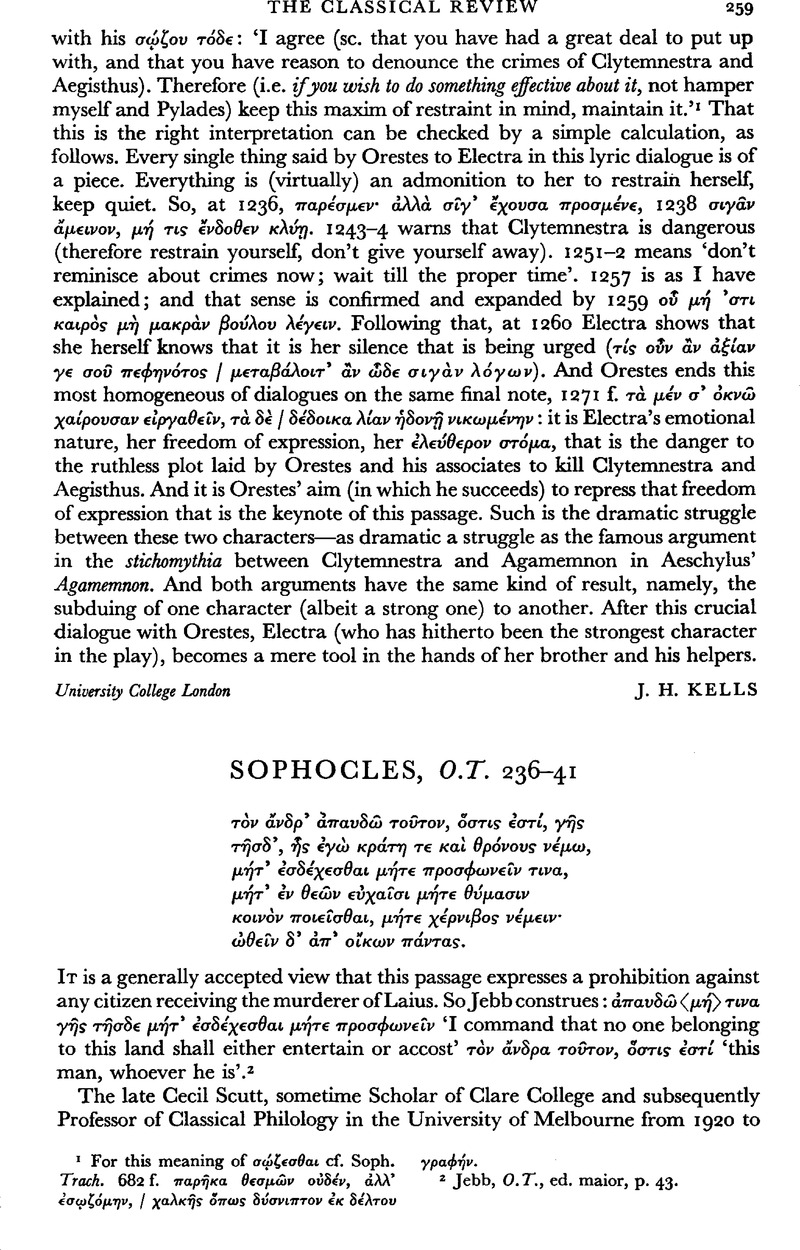No CrossRef data available.
Published online by Cambridge University Press: 27 February 2009

page 259 note 2 Jebb, O.T., ed. maior, p. 43.
page 260 note 1 My colleague Dr. Alan Henry of the University of New England has drawn my attention to two very good Aeschylean parallels for this use of εἶκοι for a single dwelling: Pers. 230 εὖτ᾽ ἂν εἰς οἴκους η⋯λωμεν and 524 ἥΞω λαβο⋯σα π⋯λανον ⋯Ξ οἴκων ⋯μ⋯ν.
page 260 note 2 The objection that the guilty might not obey should not be pressed. Cf. Caesar, B.G. vi. 13 on behaviour of excommunicated Gauls, and Josephus, B.J, ii. 8. 8 on that of excommunicated Essenes.
page 260 note 3 Jebb, O.T., ed. maior, p. 43.
page 260 note 4 Goodwin, Greek Grammar, § 1137.
page 260 note 5 Here Jebb accepts the reading of L, involving anacoluthon in 353. Scutt, who was conservative about L, also retained the anacoluthon.